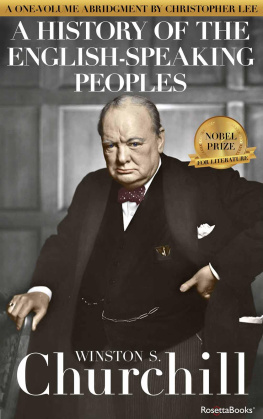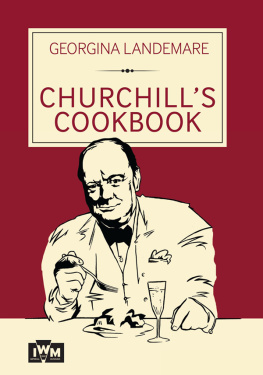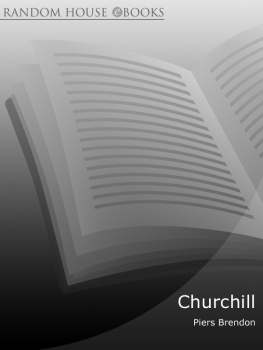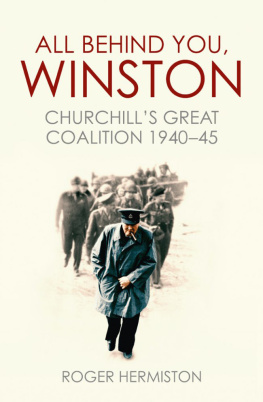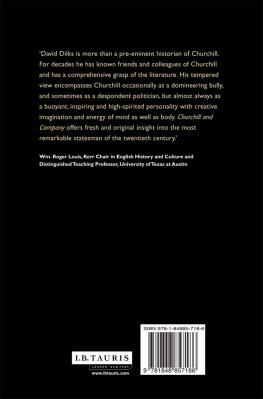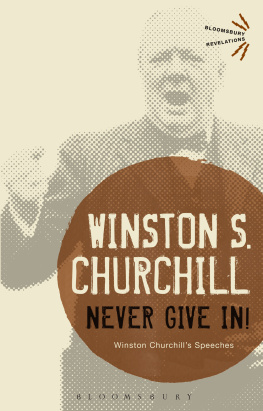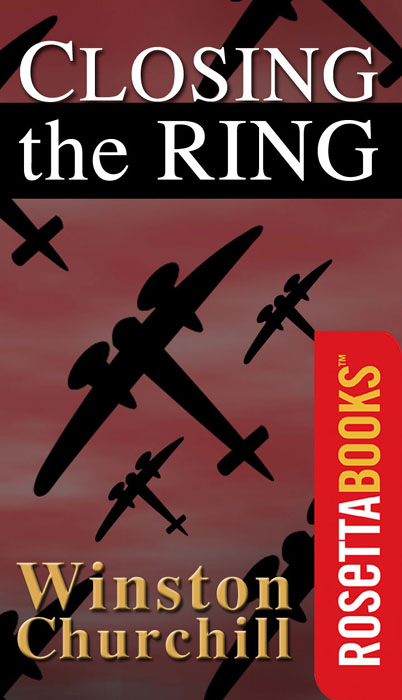Closing the Ring
Winston S. Churchill
Preface
I N THE Hinge of Fate I described the decisive change for the better in our fortunes, which lighted the winter of 1942 and the spring of 1943. Closing the Ring sets forth the year of conflict from June 1943 to June 1944. Aided by the command of the oceans, the mastery of the U-boats, and our ever-growing superiority in the air, the Western Allies were able to conquer Sicily and invade Italy, with the result that Mussolini was overthrown and the Italian nation came over to our side. Hitler with the circle of countries he had occupied was isolated, and with the immense onslaught of Russia from the East was completely surrounded. At the same time Japan had been forced onto the defensive and was vainly trying to hold the vast territories she had overrun.
The danger which faced the United Nations was no longer Defeat but Stalemate. Before them lay the formidable task of invading the two aggressors in their home lands and liberating from their grip the peoples they had struck down. This worldwide problem was faced at the Conferences between Great Britain and the United States at Quebec and Washington in the summer, and at the Triple Meeting of the main Allies at Teheran in November. There was between us no difference of aim or of resolve to give all to the common cause. Grave divergencies of method and of emphasis were inevitable because of the various angles from which the three partners naturally approached the decisions which were required. How agreement was reached upon all the supreme issues is the tale I now have to tell. It carries us to the liberation of Rome and to the eve of the British and American crossing of the Channel and entry into Normandy.
I have followed the method I used in earlier volumes. I do not seek to do more than make a contribution to history from the standpoint of the British Prime Minister and Minister of Defence. In this my directives, telegrams, and minutes, written at the time and not in the afterlight, are my stepping-stones. It has been suggested that the answers to many of these documents should also be included. I, on the other hand, have found it necessary in this volume to practise compression and selection in an increasing degree. A final volume is already needed to record and complete the story. I can therefore only make my excuses to any who may feel that their point of view is not fully set forth.
More than seven years have passed since the events here recorded happened. Many international relationships have changed. Deep rifts have opened between former comrades. New and perhaps darker clouds have gathered. Old foes have become friends and even allies. In this setting some of the sentiments and expressions contained in telegrams, minutes, and reports of Conferences may jar upon the readers in other countries. I can only remind them that these documents have an historical value and that we were then engaged in a fierce and terrible war. When men are fighting for their lives, they are not often disposed to be complimentary to those who are trying to kill them. On the other hand, to soften all harsh expressions about the enemy nations of those days would prevent a true picture being presented. Time and Truth are healers.
WINSTON S. CHURCHILL
CHARTWELL,
WESTERHAM,
KENT,
September 1, 1951
Acknowledgments
I MUST again acknowledge the assistance of those who helped me with the previous volumes, namely, Lieutenant-General Sir Henry Pownall, Commodore G. R. G. Allen, Colonel F. W. Deakin, Mr. Denis Kelly, and Mr. C. C. Wood. I have also to thank the very large number of others who have kindly read these pages and commented upon them.
I am obliged to Air Chief Marshal Sir Guy Garrod for his help in presenting the Air aspect.
Lord Ismay has continued to give me his aid, as have my other friends.
I record my obligation to His Majestys Government for permission to reproduce the text of certain official documents of which the Crown copyright is legally vested in the Controller of His Majestys Stationery Office. At the request of His Majestys Government, on security grounds, I have paraphrased some of the telegrams published in this volume. These changes have not altered in any way the sense or substance of the telegrams.
I am indebted to the Roosevelt Trust for the use they have permitted of the Presidents telegrams quoted here, and also to others who have allowed their private letters to be published.
Moral of the Work

In War: Resolution
In Defeat: Defiance
In Victory: Magnanimity
In Peace: Good Will
Theme of the Volume
How
Nazi Germany was Isolated
and
Assailed on All Sides
Contents
Book One:
I TALY W ON
Book Two
TEHERAN TO ROME
Facsimile, Maps, and Diagrams
The Battle of the Atlantic: Merchant Ships Sunk by U-boat
*
Book One
I TALY WON
1
The Command of the Seas
Guadalcanal and New Guinea
Maritime Power___The Mediterranean Freed___The Mortal Struggle with the U-Boats___The Climax of April 1943___A Welcome Respite___New Weapons___The Schnorkel___Retrospect on the Pacific War___The Solomon Islands___Guadalcanal___A Noble Feat of Arms___Our Efforts to Help the United States___The End of the Japanese Offensive___The Japanese Defeat in New Guinea___The Situation in June 1943.
E ARLIER VOLUMES have led us to the point where the aggressors, both in Europe and Asia, had been driven to the defensive. Stalingrad in February 1943 marked the turn of the tide in Russia. By May all German and Italian forces in the African continent had been killed or captured. The American victories in the Coral Sea and at Midway Island a year before had stopped Japanese expansion in the Pacific Ocean. Australia and New Zealand were freed from the threat of invasion. Henceforward in Europe the Axis must expect and await the Anglo-American assault which had so long been purposed. The tremendous armies of the United States were growing in strength and quality with every month that passed. But the Western Allies could never strike home at Hitlers Europe, and thus bring the war to a decisive end, unless another major favourable change came to pass. Anglo-American maritime power, a modern term expressing the combined strength of naval and air forces properly woven together, became supreme on and under the surface of the seas and the oceans during 1943. It was not until April and May that the U-boats were beaten and the mastery of the life-lines across the Atlantic was finally won. Without this no amphibious operations on the enormous scale required to liberate Europe would have been possible. Soviet Russia would have been left to face Hitlers whole remaining strength while most of Europe lay in his grip.
In the Mediterranean the U-boats were also mastered. Our armies for the Sicilian and Italian campaigns were assembling and could now be launched across the sea against the underbelly of Hitlers Europe. Besides this the Mediterranean was the main artery in the communications of the British Empire. The extirpation of Axis power in North Africa opened to our convoys the direct route to Egypt, India, and Australia, protected from Gibraltar to Suez by sea and air forces working from the newly won bases along the route. The long haul round the Cape, which had cost us so dear in time and effort, would soon be ended. The saving of an average of forty-five days for each convoy to the Middle East increased magnificently at one stroke the fertility of our shipping.


